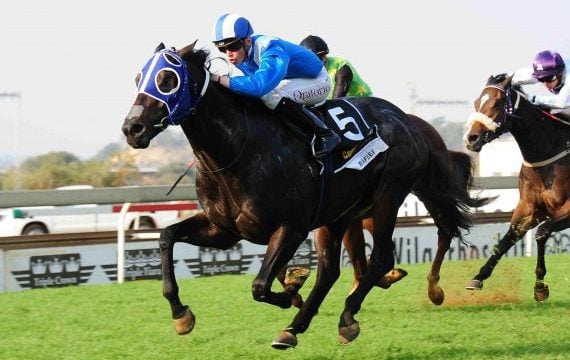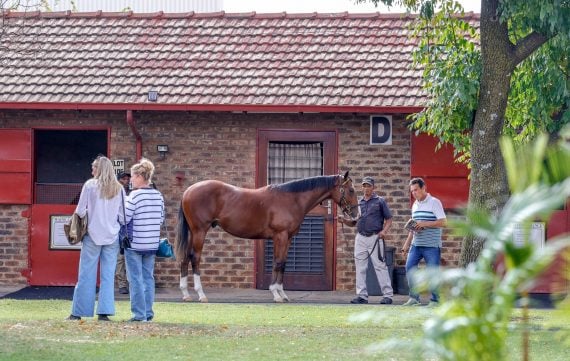Last week the SA Veterinary Services and industry sponsor, the SA Equine Trade Council, hosted a delegation of veterinarians from Qatar who came to inspect South Africa’s AHS control measures with a view to establishing a protocol that allows direct imports to Qatar. Currently, horse imports from South Africa are required to travel via Europe, significantly impacting the cost of delivery (additional cost estimated to be US$15 000/horse) and the conditioning of the horses which are exposed to new climatic conditions and diseases en route to their final destination, writes Peter Gibson.
In recent years, Qatar’s racing and equestrian business has expanded dramatically and in 2006 they successfully hosted the Asian Equestrian Games in Doha. As one of the wealthiest of the Gulf States, they have the means to expand their equestrian programme and their sponsorship of the Prix de l’ Arc de Triomphe, Europe’s richest race, is a clear indication of their intention to strengthen thoroughbred horseracing in Qatar.
Mr Abdulaziz Alzeyara led the Qatar delegation and was accompanied by Dr M El-Maghrabi (Quarantine Specialist, Qatar Government) and Dr Y Kassab (Qatar Racing & Equestrian Club) with Mr Essam Mohamed as official interpreter. The delegation was officially welcomed by Dr D Keet (Acting Director of SA Veterinary Services) at the opening meeting in Pretoria before travelling to Cape Town to inspect South Africa’s AHS Controlled Area and pre-export quarantine at Kenilworth Quarantine Station. Dr Gary Burhmann (Chief State Veterinary Officer, Western Cape), Prof Alan Guthrie (Director Equine Research Centre) and Dr Beverley Zietsman (Racing SA veterinary liaison) accompanied the delegation with Peter Gibson representing South Africa’s Equine Trade interests.
The itinerary incorporated a trip over the Hottentots Holland Mountain Range, one of the major physical barriers that form part of South Africa’s AHS Controlled Area and which defines the boundary between the Surveillance Zone and the Protection Zone. John and Lana-Anne Koster of Klawervlei Stud kindly hosted the delegation for lunch before returning to the Surveillance Zone via the Franschoek Pass to visit the Rupert family’s Drakenstein Stud. The 450km covered during the day puts the scale of the AHS Controlled Area into perspective when considering that the Surveillance Zone alone is bigger than Qatar itself.
 Qatar delegates visiting Klawervlei Stud (top from left: Dr Aileen Pypers; Dr Beverley Zietsman; Dr Gary Burhmann; Dr Mamdouh El-Maghrabi; Dr Yousef Kassab; Prof Alan Guthrie; Mr Abdulaziz Alzeyara; Mrs Lana-Anne Koster; Mr John Koster. Front from left: Mr Peter Gibson and Mr Essam Mohamed)
Qatar delegates visiting Klawervlei Stud (top from left: Dr Aileen Pypers; Dr Beverley Zietsman; Dr Gary Burhmann; Dr Mamdouh El-Maghrabi; Dr Yousef Kassab; Prof Alan Guthrie; Mr Abdulaziz Alzeyara; Mrs Lana-Anne Koster; Mr John Koster. Front from left: Mr Peter Gibson and Mr Essam Mohamed)
An inspection of Kenilworth Quarantine Station, South Africa’s official pre-export quarantine facility, was scheduled for the following day and Manager, Sue Mutch, walked the delegation through the various standard operating procedures applied at the quarantine station which included a detailed explanation of the principles behind the vector-protection. Kenilworth’s March 2011 shipment of 36 horses had started official quarantine the day before which offered the visitors a real quarantine experience.
The delegation at Kenilworth Quarantine Station
The delegation then returned to Pretoria where they visited Onderstepoort Veterinary Institute, South Africa’s internationally accredited laboratory, and Equine Research Centre, where Prof Alan Guthrie was able to expand on the various research projects currently in progress including the new PCR diagnostic test for AHS and the development of a new vaccine for AHS.
The closing meeting with the Director of Veterinary Services was held at Delpen Building, Department of Agriculture, Forestry and Fisheries. In terms of procedure, the Qatar delegation is expected to present a detailed report to the Qatar Government following which formal negotiations will commence between the respective veterinary departments to discuss the conditions under which South Africa is able to export horses to Qatar.
With South Africa having been the first African country to have hosted the Football World Cup and Qatar being the first of the Middle East countries to do the same in 2022, there is much common ground between the two countries and it is hoped that equestrian ties can be strengthened.








